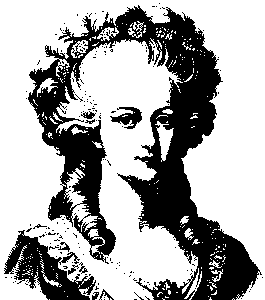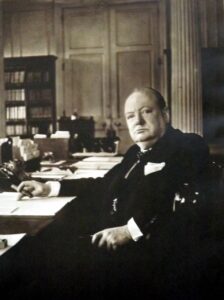⏱️ 6 min read
Throughout human history, certain documents have fundamentally altered the course of civilization, establishing principles that govern societies, protecting human rights, and recording knowledge for future generations. These written works have sparked revolutions, ended wars, established nations, and defined the relationship between individuals and their governments. The power of the written word has proven capable of reshaping entire civilizations and continues to influence billions of people today.
Documents That Changed the World
1. The Magna Carta (1215)
Sealed by King John of England in 1215, the Magna Carta established the revolutionary principle that everyone, including the monarch, is subject to the law. This Latin document, whose name means "Great Charter," was created when rebellious barons forced the king to acknowledge certain legal rights and limitations on royal power. While initially intended to protect baronial privileges, the Magna Carta evolved into a foundation for constitutional governance. Its clauses guaranteeing due process and prohibiting arbitrary imprisonment influenced legal systems worldwide, including the U.S. Constitution and the Universal Declaration of Human Rights.
2. The Gutenberg Bible (1455)
As the first major book printed using movable type in the Western world, the Gutenberg Bible revolutionized not just religious practice but the entire dissemination of knowledge. Johannes Gutenberg's innovation made books accessible beyond wealthy elites and religious institutions, democratizing information in unprecedented ways. This document's significance lies not only in its religious content but in what it represented: the beginning of the printing revolution that would enable the Renaissance, the Reformation, and the Scientific Revolution. The ability to mass-produce written works fundamentally transformed education, religion, and society.
3. The Declaration of Independence (1776)
Drafted primarily by Thomas Jefferson, the Declaration of Independence announced the thirteen American colonies' separation from British rule and articulated principles that would inspire democratic movements globally. Its assertion that "all men are created equal" and possess "unalienable Rights" including "Life, Liberty and the pursuit of Happiness" established a new philosophical foundation for government. The document's argument that governments derive their power from the consent of the governed, and that people have the right to alter or abolish oppressive governments, has influenced countless independence movements and constitutional frameworks worldwide.
4. The United States Constitution (1787)
The U.S. Constitution created the world's oldest written national constitution still in use, establishing a federal system with checks and balances that has served as a model for numerous other nations. This document created a framework for democratic governance that balanced power between federal and state authorities while protecting against tyranny through its separation of powers among executive, legislative, and judicial branches. The Constitution's flexibility, demonstrated through its amendment process, has allowed it to adapt to changing times while maintaining core principles. Its Bill of Rights, added in 1791, guaranteed fundamental freedoms that have become benchmarks for human rights globally.
5. The Communist Manifesto (1848)
Written by Karl Marx and Friedrich Engels, The Communist Manifesto presented a political philosophy that would shape the 20th century more than perhaps any other document. This pamphlet analyzed class struggle throughout history and called for workers to unite against capitalist exploitation. Whether one agrees or disagrees with its ideology, the Manifesto's influence on global politics, economics, and social movements cannot be overstated. It inspired revolutions in Russia, China, and numerous other nations, affecting billions of lives and creating political divisions that defined the Cold War era and continue to influence political discourse today.
6. Darwin's "On the Origin of Species" (1859)
Charles Darwin's groundbreaking work revolutionized humanity's understanding of life itself by presenting the theory of evolution through natural selection. This scientific document challenged prevailing religious and philosophical beliefs about creation, sparking debates that continue today. Beyond its immediate scientific impact, the work fundamentally altered how humans view their place in nature and their relationship to other living organisms. The principles outlined in this document became the foundation of modern biology and influenced fields ranging from medicine to psychology, anthropology to agriculture.
7. The Emancipation Proclamation (1863)
President Abraham Lincoln's executive order declared freedom for enslaved people in Confederate states, fundamentally transforming the American Civil War into a fight for human liberty. While its immediate practical effect was limited to areas outside Union control, its symbolic and political significance was immense. The Proclamation paved the way for the Thirteenth Amendment, which abolished slavery throughout the United States, and marked a crucial step toward racial equality. This document demonstrated how written declarations could reshape moral understanding and social structures, inspiring subsequent civil rights movements globally.
8. The Treaty of Versailles (1919)
This peace treaty formally ended World War I and redrew the map of Europe, creating new nations and imposing harsh penalties on Germany. The treaty's terms, particularly the war guilt clause and massive reparations, created economic hardship and resentment that contributed to World War II's outbreak. The document also established the League of Nations, humanity's first major attempt at international governance to prevent future conflicts. Despite its ultimate failure to maintain peace, the Treaty of Versailles shaped international relations throughout the 20th century and influenced how nations approach post-conflict reconstruction and international cooperation.
9. The Universal Declaration of Human Rights (1948)
Adopted by the United Nations General Assembly in the aftermath of World War II's atrocities, this document established a common standard for human rights across all nations and cultures. Eleanor Roosevelt chaired the drafting committee that created this milestone, which proclaimed inalienable rights including freedom from slavery and torture, freedom of thought and expression, and rights to education and work. While not legally binding, the Declaration has inspired numerous international treaties, national constitutions, and human rights laws. It represents humanity's collective aspiration toward dignity and justice for all people, regardless of race, religion, nationality, or other distinctions.
10. The Geneva Conventions (1949)
These four treaties established international legal standards for humanitarian treatment during war, protecting wounded soldiers, prisoners of war, and civilians. Building upon earlier agreements dating to 1864, the 1949 Conventions responded to World War II's unprecedented brutality by strengthening protections and expanding coverage. The documents established principles that even during humanity's darkest conflicts, certain actions remain unacceptable. Additional protocols adopted in 1977 and 2005 extended these protections to civil wars and non-international conflicts. The Geneva Conventions represent international consensus that even warfare must have limits, and they provide legal foundations for prosecuting war crimes.
The Enduring Power of Written Words
These ten documents demonstrate that written words possess extraordinary power to transform societies, establish rights, advance knowledge, and shape human destiny. From medieval charters limiting royal power to modern declarations of universal human rights, these texts have established principles that billions of people live by today. They remind us that ideas, when carefully articulated and widely disseminated, can prove more powerful than armies or empires. Each document emerged from specific historical circumstances yet achieved timeless significance by addressing fundamental questions about justice, freedom, knowledge, and human dignity. Their continued relevance demonstrates that while technology and societies evolve, core human aspirations for liberty, equality, and understanding remain constant across centuries and cultures.






















